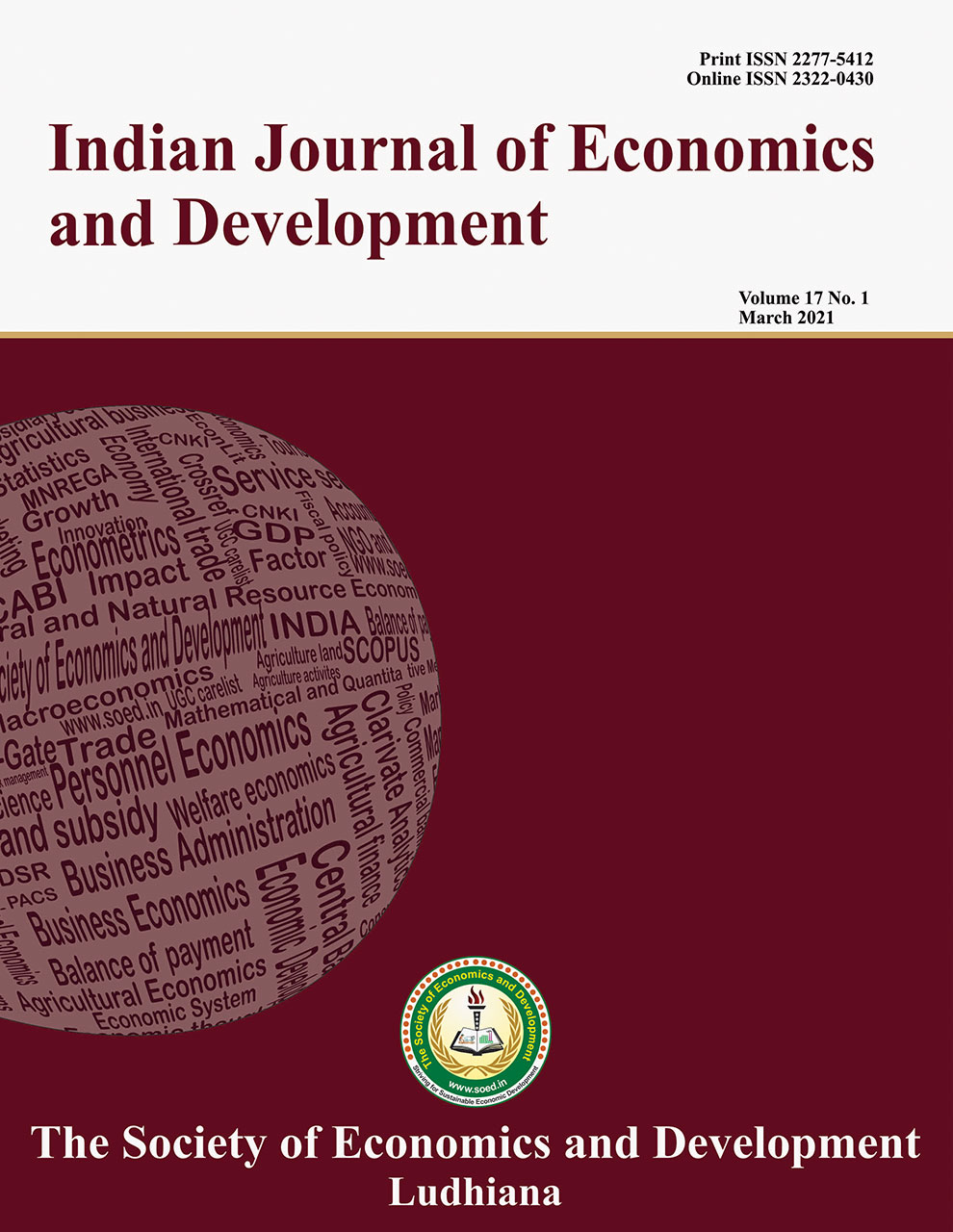Economic Benefits of Protected Vegetable Cultivation by the Farmers Trained by KVK Jalandhar

Price: ₹ 1000
Author: Lovepreet Singh, Kuldeep Singh and Lavleesh Garg
Author Address: Department of Extension Education, Punjab Agricultural University Ludhiana -141001, Punjab (India)
Keywords: Economic, net profit, protected vegetable cultivation, yield
JEL Codes: O13, O14, Q16, Q18.
Abstract
The study was undertaken to examine the economic benefits of protected vegetable cultivation. A total sample of 200 respondents practicing protected vegetable cultivation was selected from Jalandhar district from which 150 respondents were trained by KVK Jalandhar and the remaining 50 respondents were non-trainees. The findings concluded that 42.0 percent of trainees and 38.0 percent of non-trainees were in the age group of 39-52 years. It was revealed that 19.3 percent of trainees had a graduate level of education while 20.0 percent of non-trainees had a middle level of education. It was found that 66.0 percent of trainees and 54.0 percent of non-trainees had medium landholding. The majority of trainees (78.6 percent) and non-trainees (86 percent) had farming as an occupation. Most of the trainees and non-trainees contacted horticulture development officers. It was concluded that 32.6 percent of trainees procured seed or seedling from private firms whereas 40.0 percent of non-trainees procured seed or seedling from fellow farmers. The trainees obtained higher yield and net profit than non-trainees from all sample vegetable crops.
Description
Indian Journal of Economics and Development
Volume 16 No. SS, 2020, 487-491
DOI: https://doi.org/10.35716/ijed/NS20-095
Indexed in Clarivate Analytics (ESCI) of WoS
Lovepreet Singh, Kuldeep Singh and Lavleesh Garg
Department of Extension Education, Punjab Agricultural University Ludhiana -141001, Punjab (India)
Corresponding author’s email: lovepreet-ee@pau.edu



